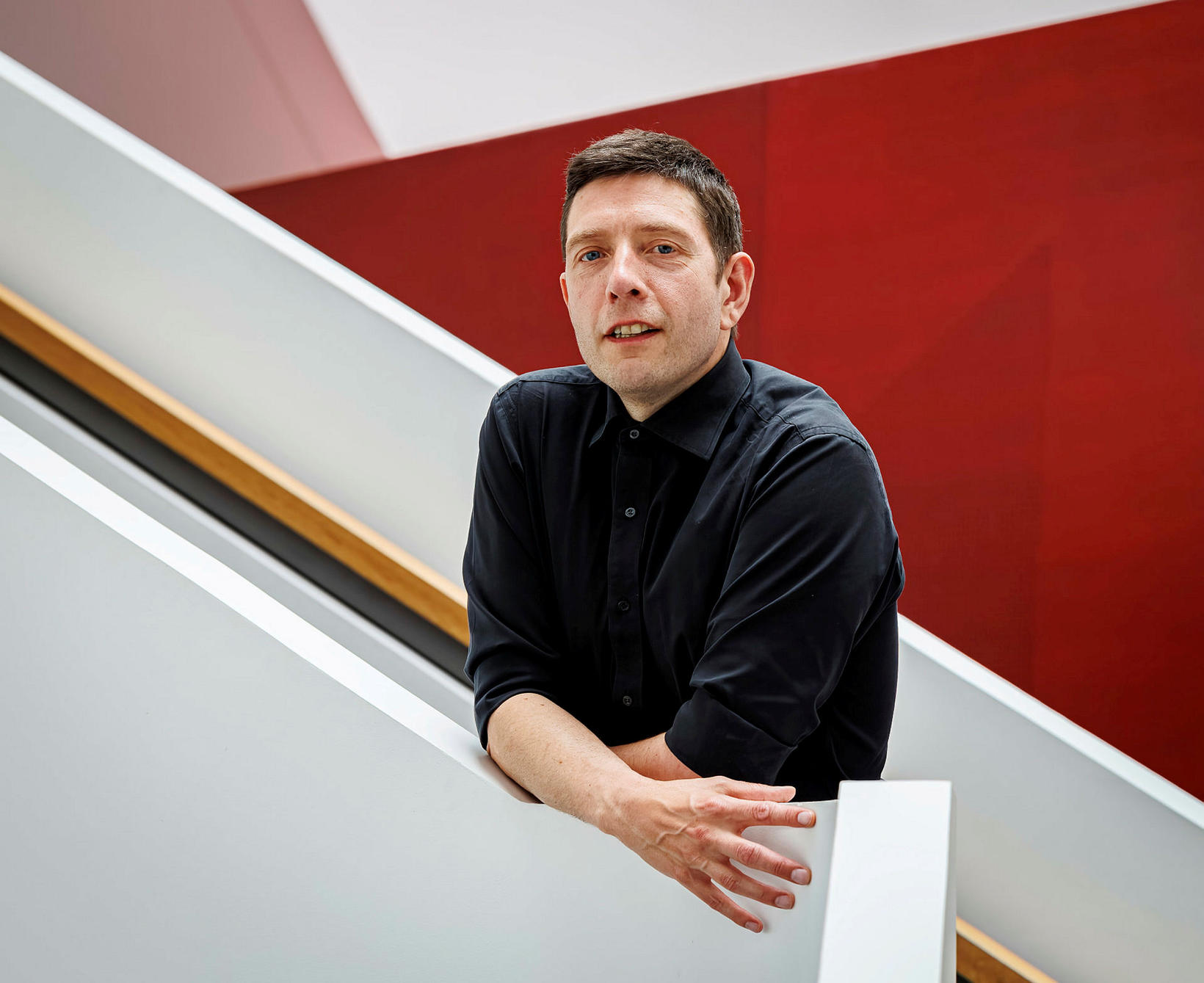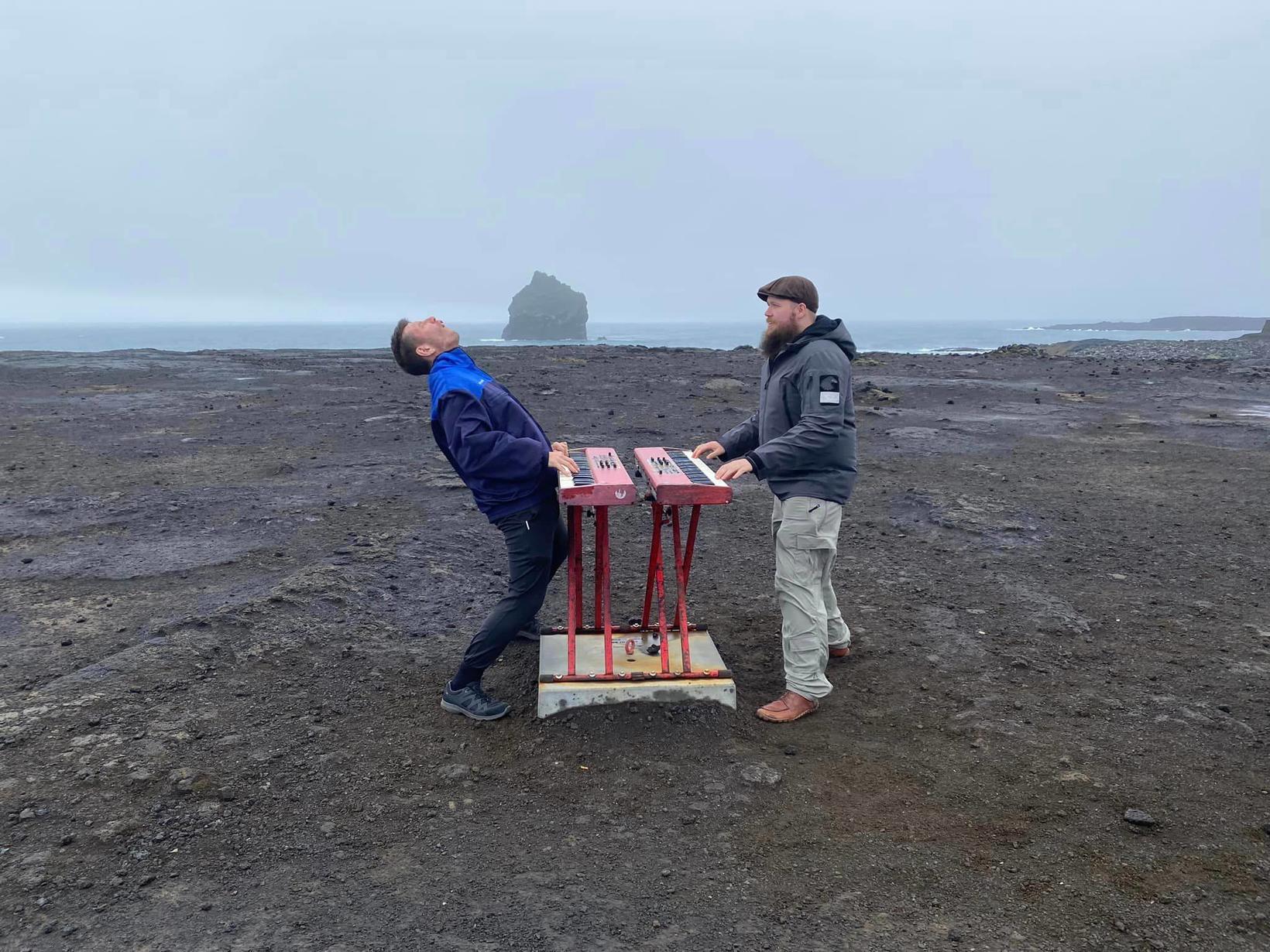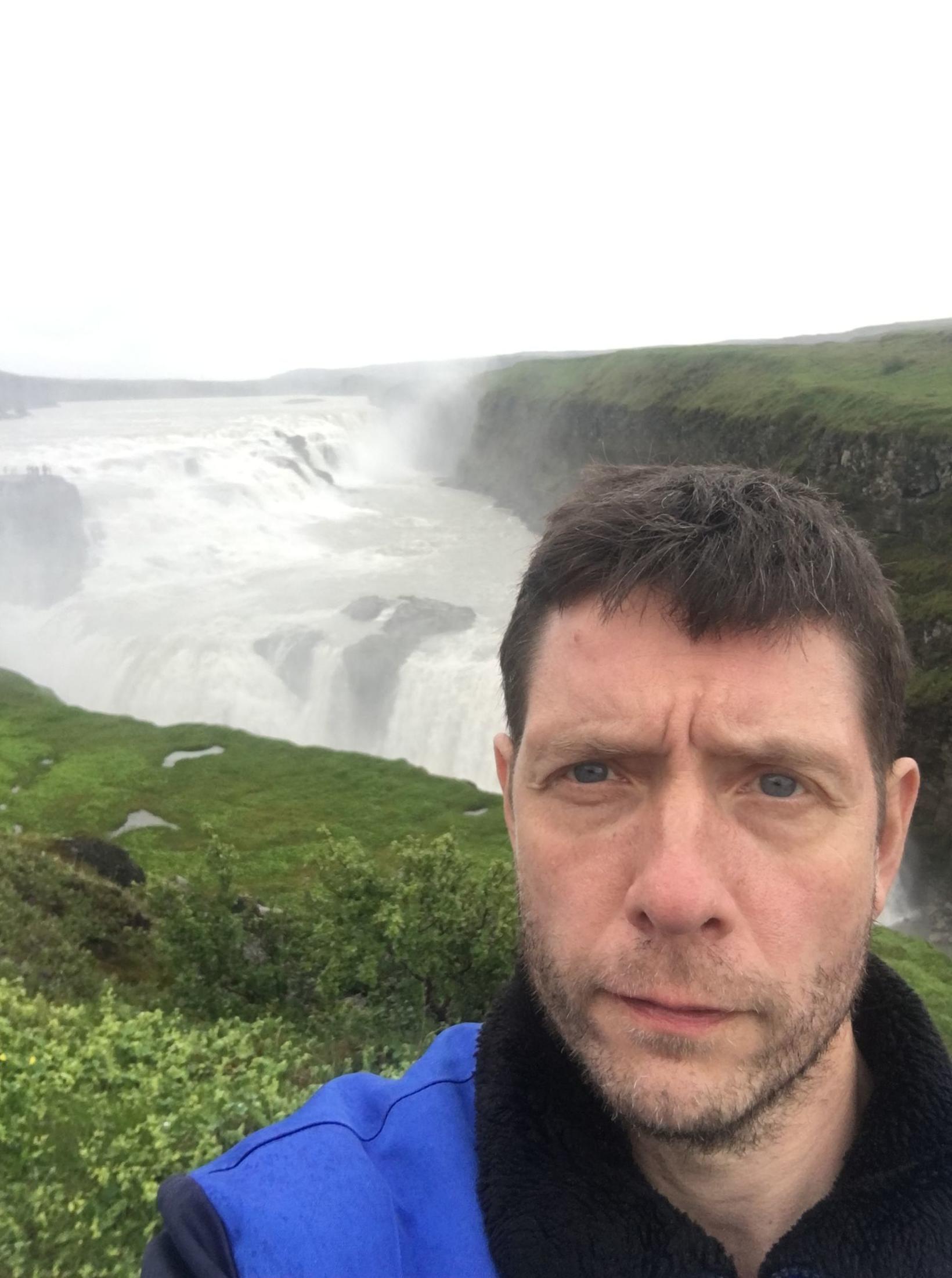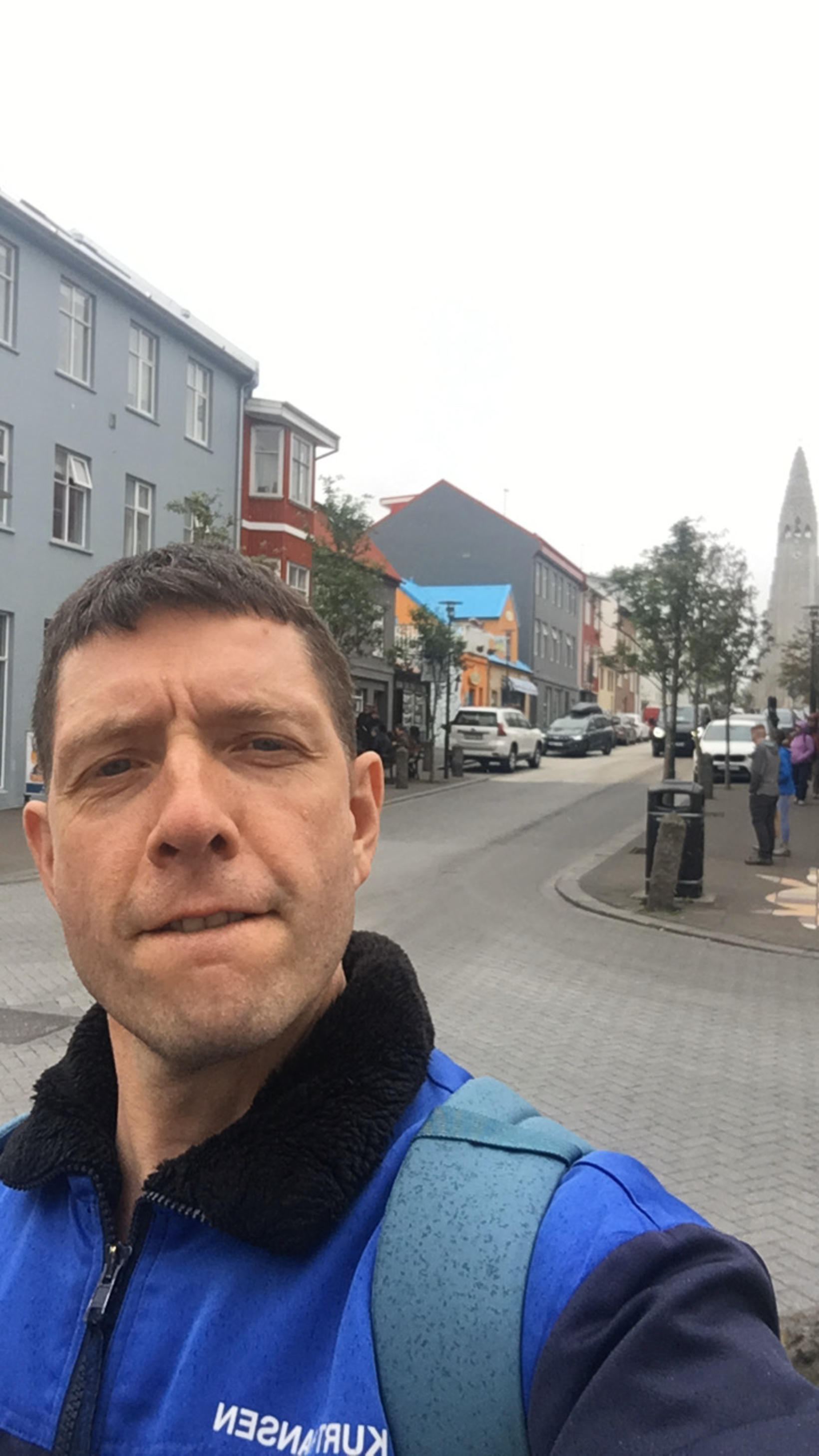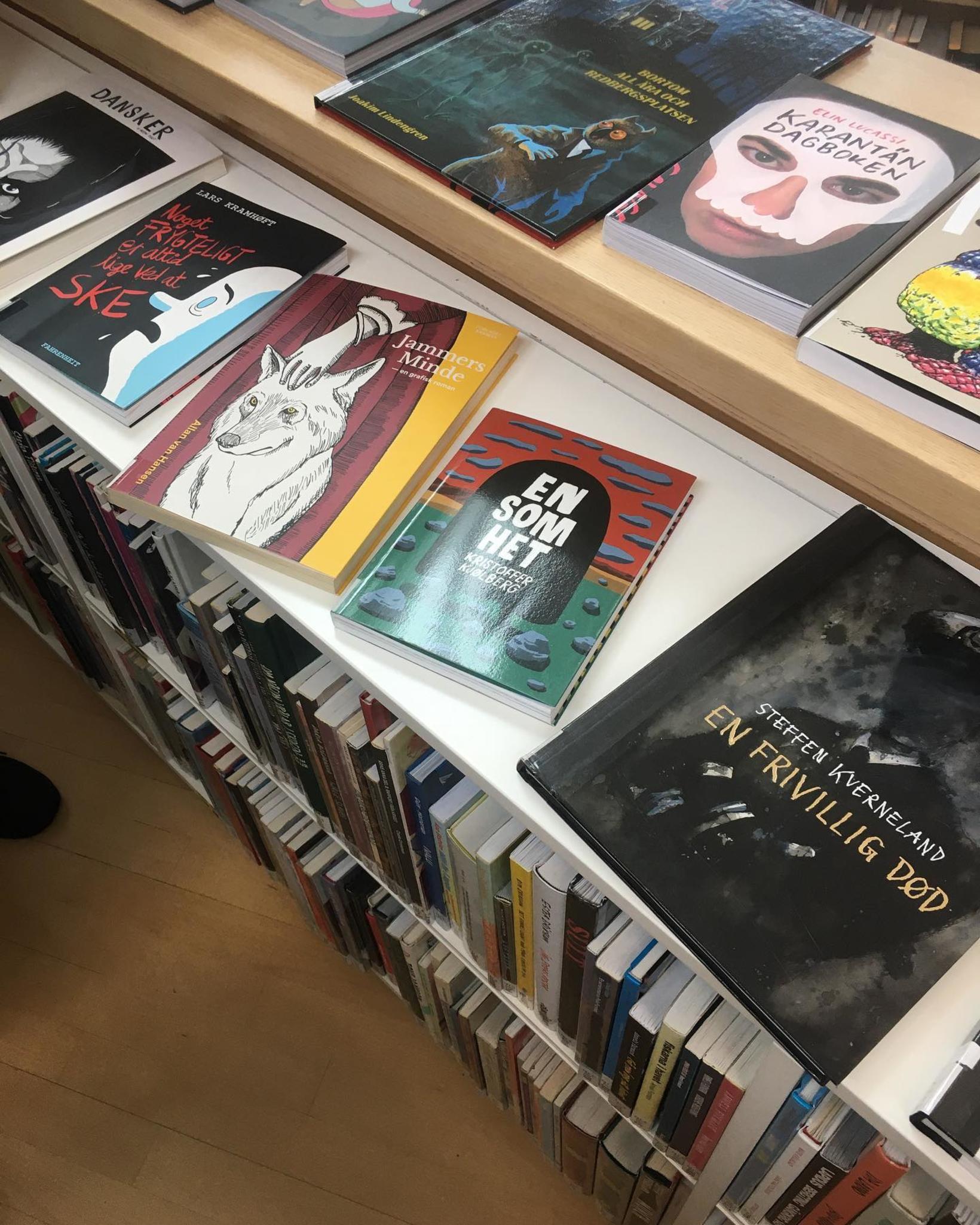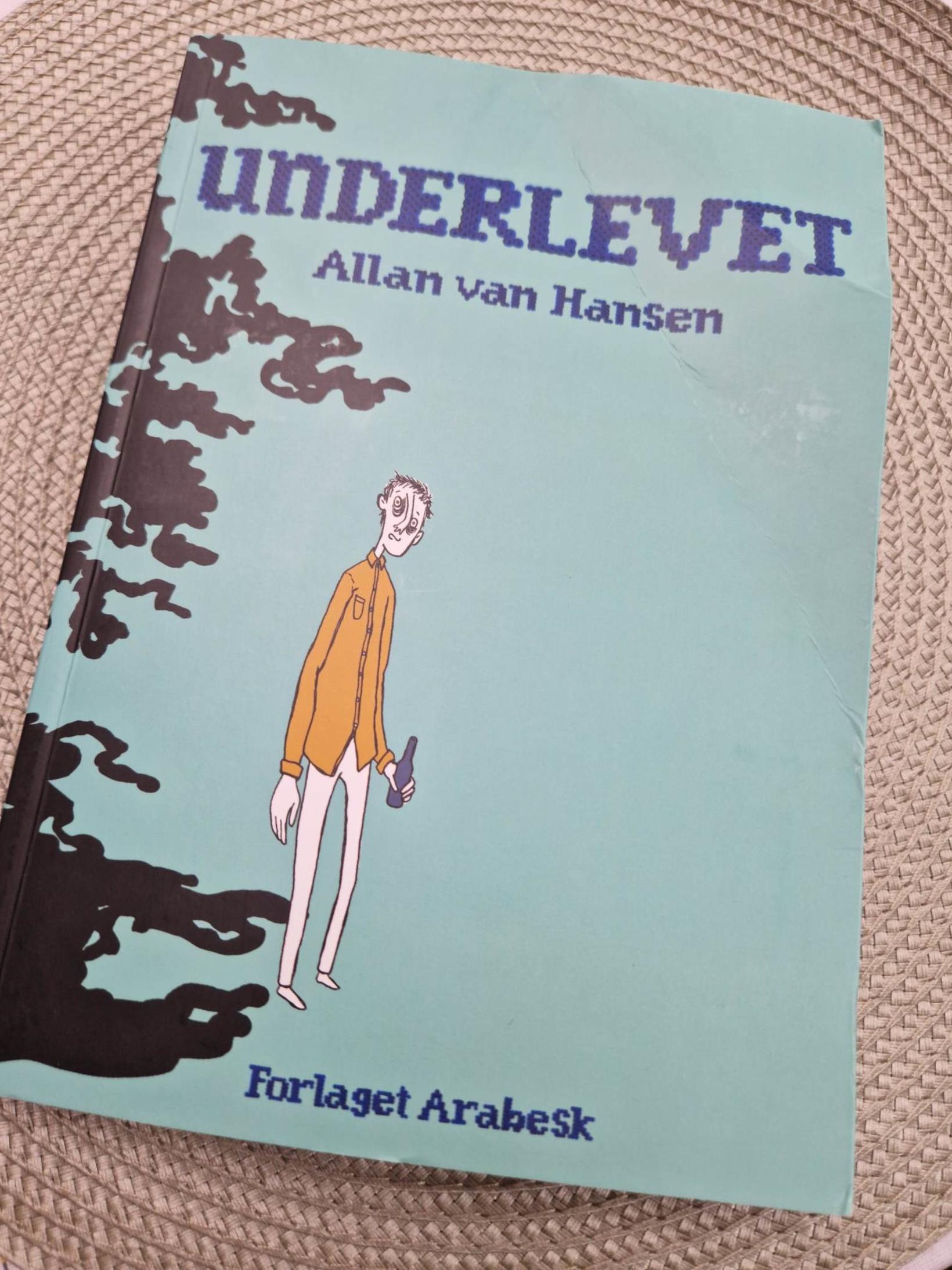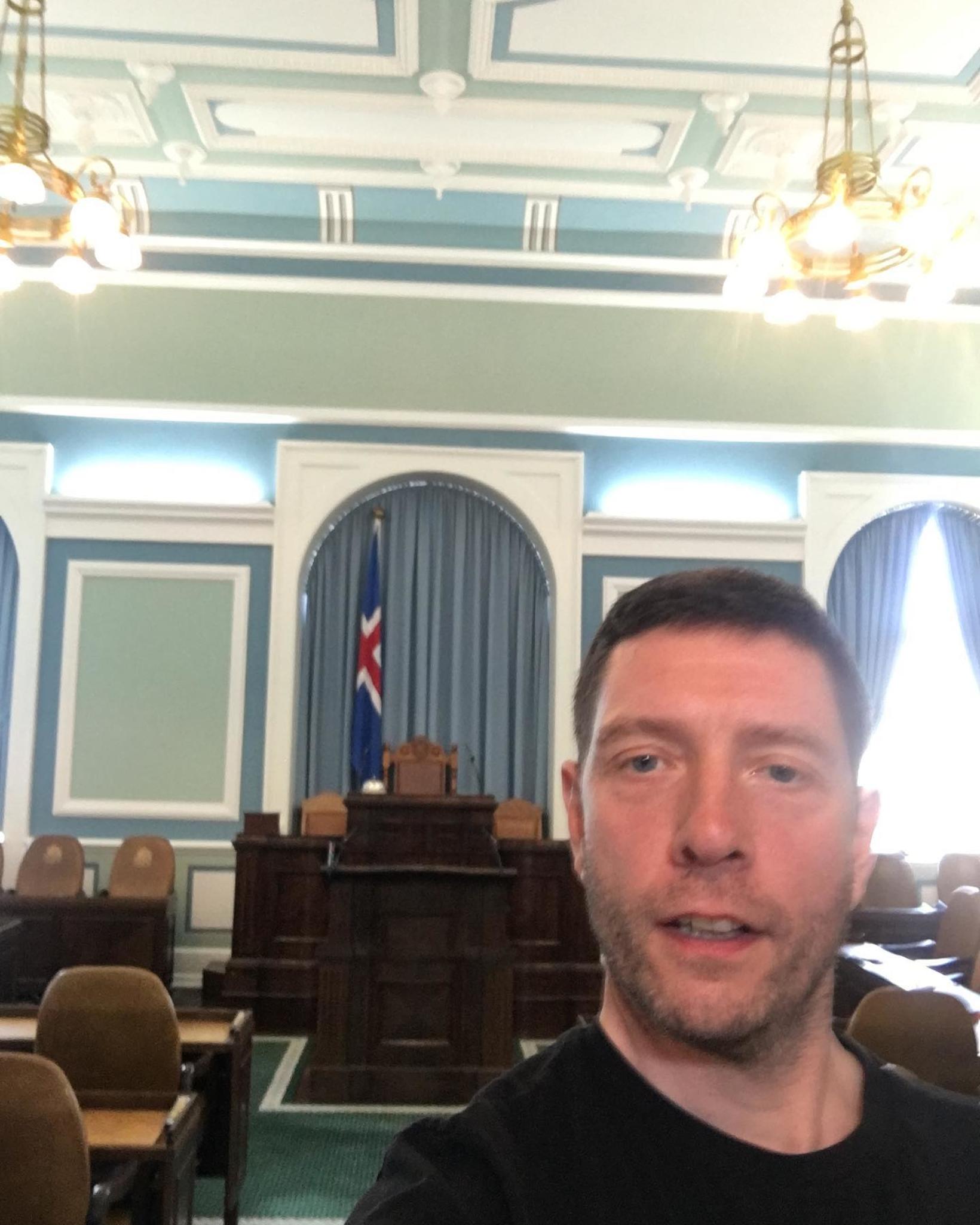President Vigdís was his role model
“I just think Iceland is so beautiful and I love the way the language sounds,” says award-winning author and Danish teacher Allan van Hansen, who is completing a four-week Icelandic course at the University of Iceland.
He is Danish and an enthusiastic linguist. Allan understands seven languages, and one of his main role models is former President Vigdís Finnbogadóttir, who he managed to spot at Tjörnin Lake in Reykjavík.
A reporter for mbl.is sat down with Allan at Veröld – Vigdís’s house and discussed his love for Iceland. The interview was mostly in Icelandic, which Allan has a very good command of, although he has come to the country for four rather brief visits.
The interest was sparked by Eurovision
Allan grew up in a small town in Funen, Denmark, with his parents and two sisters. One of them is his twin sister.
Allan now lives in Copenhagen, but teaches Danish in a distance teaching program at a university in Stockholm. In addition to Danish and Icelandic, Allan speaks Swedish, Dutch, English, German, and can manage in Finnish.
Asked where the interest in languages comes from, Allan says he was fascinated by Eurovision as he was young.
Allan by the piano which was used in the American movie Eurovision Song Contest: The Story of Fire Saga, but it is located on the Reykjanes peninsula. As a matter of fact, his interest in languages was sparked by the Eurovision contest. Photo/Sent to mbl.is
He says he recalls hearing the contest’s songs, all of which were then sung in the national languages of many countries, and thinking, “There are people who understand those words.” As Allan grew up, he watched a lot of German children’s programs as came to understand the language, but he could not speak it at this point.
Allan learned Dutch when he was an exchange student in a town near Amsterdam when he was 16.
Thrown into the deep pool
Allan made his first visit to Iceland when he was in his late twenties at the turn of the 2000s for two months. It was through Nordjobb, a Nordic labour market project.
Allan worked at a summer school in Reykjavík where he supervised young people with disabilities. He says that the only thing he could do was to speak Icelandic to the children, since most of them did not know English.
“I had to try to speak Icelandi c the very first day. That was a great exercise,” he says and claims that this first summer set the foundation for his learning of the Icelandic language.
This summer he lived in a small apartment in Laugavegur in downtown Reykjavík and he says it was the best summer of his life, so far.
Nice to see the country in winter
Allan studied Danish at a university in Denmark and then came back to Iceland several years before the banking collapse in 2008. Then he worked for several weeks in archaeological excavations at Hólar in Hjaltadalur, along with other people from the Nordic countries.
The group spoke Scandinavian most of the time, so Allan got less practice in Icelandic during that visit.
He then came to Iceland for the third time in the winter of 2012 for one week at a conference. He says it’s been a nice change to visit the country in winter.
Eleven years later, Allan is back in Iceland, speaking the language very well despite his long absence.
"I miss the country a lot"
Allan says that he is sometimes ashamed of his love for Iceland because he is so uncritical of everything that has to do with the country. He describes Icelanders as a relaxed and open nation.
“I often miss the country and want to go back,” Allan says, adding that he was delighted to be able to get back to Iceland this summer. The four-week Icelandic course Nordkurs at the University of Iceland, which he has been attending, is now nearing completion.
In addition to the Icelandic study, the course’s participants listen to lectures on Icelandic society, history, literature and culture, and visit historical sites in South and West Iceland.
He says that he has learned a lot in the last four weeks and that his Icelandic has become much better. Allan mentions that he tried listening to the radio show Lestin at the beginning of this year, but he understood little or nothing.
Now he has listened to the show several times and has understood most of it. “Of course, I don’t understand 100 percent all the vocabulary they use, but I always understand the big context. Enough to keep my attention from going away.”
Watching Icelandic TV shows
Allan says that much has changed in Reykjavík since his arrival in 2012, “but I still know the town again.”
Then he says he is happy that Mokka-kaffi, his favourite café, is still in operation.
Allan says a lot of things have changed in Reykjavik since his first visit in 2012. Photo/Sent to mbl.is
Asked how he has maintained the Icelandic language for the 20 years since he first came to Iceland, Allan says that he has watched Icelandic television shows on Netflix, among other things.
He has tried to get to know Icelanders in Copenhagen to exchange their learning of their native languages, but says that this has been difficult. “Maybe the Icelanders in Copenhagen are so good at speaking Danish, I don’t know.”
As he said before, Allan teaches Danish at a Swedish university, which he likes very much. All lessons are in Danish, which sometimes stresses students, but people are quick to understand, according to Allan.
The Ping Award
Allan has published two comic books, one of which won the Ping Award as Best Danish comic book in 2023.
The first, Jammers Minde, was published in 2019 and it was seven years in progress, Allan said. The book is based on the memories of Danish royal daughter Leonora Kristina in in the Blue Tower in the 17th century, a memoir written by herself.
The story of this half sister of Frederick III, imprisoned by her own brother and housed in miserable conditions for 22 years, is told in 17 chapters. The way Leonora’s life is described, her fate and encounters with prison guards and fellow prisoners. Drama at the Danish court is portrayed in pictures and language, making for an informative and a vivid account.
Allan says that when he read Leonora Kristín’s lament in the Blue Tower during his Danish studies, the story appeared clearly to him graphically and inspired his comic book.
Allan’s second book is ‘ Underlevet’, a prize-winning novel published last year, is about young brothers who are sexually abused as boys. The story takes on a different aspects of their lives, how they deal with the consequences of the violence and how it shapes them differently. The confrontation with the perpetrator is interesting and questions are posed whether it is possible to heal from this experience.
Allan says he hopes the books will be translated into Icelandic someday. “It would be so nice if I could have a book in Icelandic, we’ll see.”
Biked another lap to see Vigdís
When asked about his admiration for Vigdís Finnbogadóttir he mentions that his fellow students in the Nordkurs course are mostly in their early twenties, so many of them do not know the former President, which he finds unbelievable.
Vigdís, like most people, has, emphasized the importance of safeguarding the Icelandic language. Allan agrees with her.
“It’s so important that we learn languages,” he says, adding that international cooperation is particularly important.
"Vigdís knows that."
The second book that Allan wrote is the Síðari bók Allans er the awared novel Underlevet which was published last year. Photo/Sent to mbl.is
Allan decided to email Vigdís shortly after he arrived in early June to ask if she was free for a cup of coffee. A reply has not been received yet, but Allan says he doesn’t think the meeting is going to take place.
However, Allan saw Vigdís walking by the Tjörnin pond a few days ago. He was on a bike and said he had cycled another lap around Tjörnin to make sure that it was Vigdís.
"I wanted to stop and say hello, but I didn't dare," Allan says, laughing.
He then mentions that he also saw President Guðni Th. Jóhannesson and Prime Minister Katrín Jakobsdóttir at a celebration in Austurvöllur on June 17. He says it’s funny how little security there was compared to the fact that there were the nation’s leading officials gathered there.
Allan wants to further his studies in Icelandic at the University of Iceland and is definitely planning on coming back to the country.
“I think this Nordic collaboration we have in Europe is very important,” he says, adding, finally, that it is important for everyone to learn about different nations.

